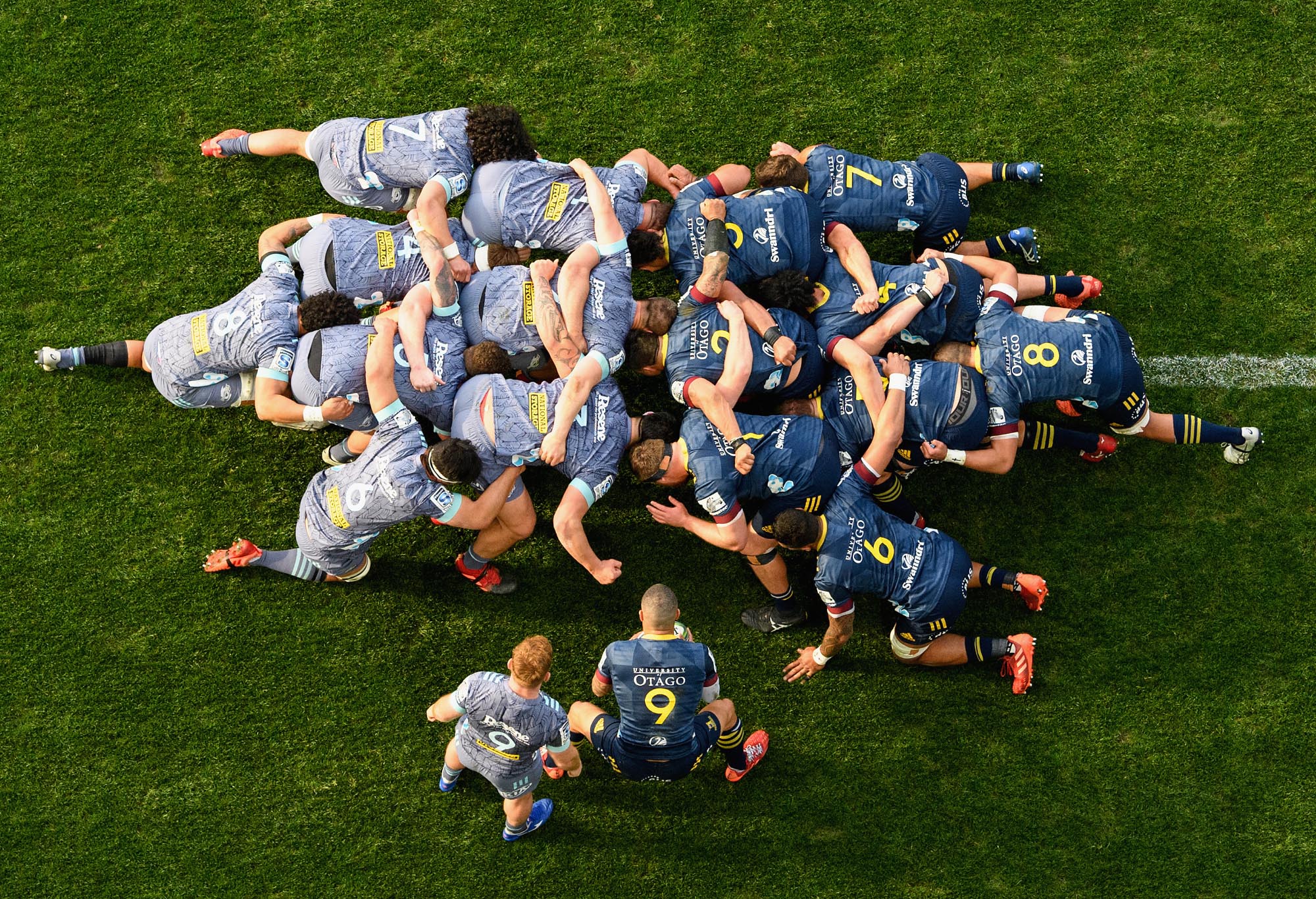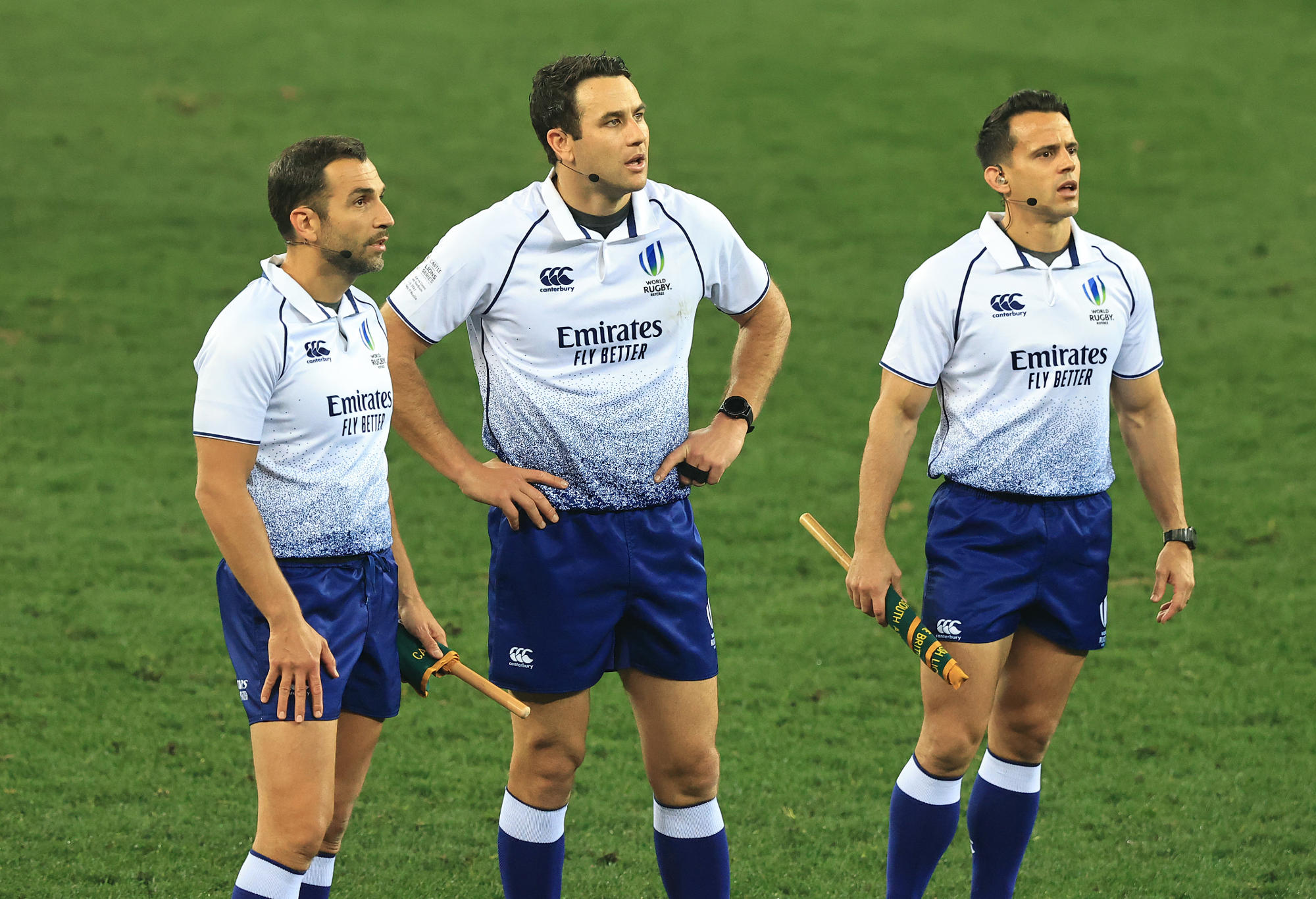Super Rugby Pacific has attempted to be the innovators of the game, with the premier Southern Hemisphere competition ushering through a series of law changes designed to speed up the game and make it more appealing to viewers.
The game they play in heaven has been clouded like never before over the past decade, with health and safety and nitpicking officials eager to stay on the conservative side of the law to further their standing on the world stage.
But a series of law changes, including shot clocks and reduced Television Match Official intervention that will extend to a change in the red card process, as well as a subtle tweak to the pesty halfbacks at scrums, will be experimented with in the 2023 Super Rugby competition.
“We want Super Rugby Pacific to be the most entertaining, innovative and fastest professional rugby competition in the world. We’ve listened to our fans and taken steps to reduce stoppages and video replays, increase flow and maintain the integrity of the competition and the safety of players in regard to yellow and red cards,” tournament director Matt Barlow said.
“Players, coaches and referees are excited about these innovations, and we believe they will create a better fan experience both at game and for those watching on television.”

Halfbacks won’t be able to apply the same pressure on the opposite No.9 at scrum time while shot clocks will be implemented to keep the game moving. Photo: Kai Schwoerer/Getty Images
The question, however, is whether they will work and if they can prepare players adequately for international matches, particularly in a World Cup year?
Shot clocks – kickers will have 90 seconds to convert a try, 60 seconds penalty; 30 seconds to form a set-piece (scrum and lineout) and five seconds to use the ball at a ruck – will be implemented.
The ridiculous water breaks, unless it is dangerously hot, will thankfully be canned.
The vexed subject of deliberate knock-ons have been examined but doesn’t look to have changed, with officials told to only penalise “clear and deliberate attempts to knock the ball forward without trying to regain possession”.
Yellow cards can still be issued but “reserved for extremely cynical actions that prevented a clear tryscoring opportunity or linebreak”.
Halfbacks, meanwhile, won’t be able to put pressure on the opposition halfback at the scrum as they have in the past.
The governing body has done that to allow set-piece play to flow better.
Golden point will also be implemented, with a further 10 minutes of play, including injury time, provided to give teams one final chance to finish the game through the first scoring action. If no team scores a point, the match will end in a draw.

The Television Match Official will be able to upgrade yellow cards in new laws implemented by SANZAAR. Photo: David Rogers/Getty Images
Perhaps the biggest change (in theory at least) implemented revolves around foul play.
While on-field referees will still be able to examine replays of foul play, they will be encouraged to watch no more than two replays to determine whether a card meets the red card threshold, The Roar understands.
If it is not clear and obvious, a yellow card will be shown and the TMO has the ability, within eight minutes, to determine whether it should have been a red card.
If a player’s yellow card is upgraded to a red, they will be ruled out of the game. However, a replacement can come onto the field after 20 minutes. A player shown a red card on the field won’t be able to have a player replace them.
Super Rugby Pacific tournament organisers are hoping the changes take the pressure off the on-field officials – who are often forced to make quick and significant calls after examining multiple replays on the big screen – and empower the TMO to make a considered call with the benefit of time.
Indeed, TMO interruptions will be “restricted to serious clear and obvious dangerous play”, but “serious and obvious dangerous play” remains open to interpretation.
That, in itself, appears riddled with danger given the on-field referee is the person who sets the tone and understands the feel of the game, while the on-field referee is often the best official and often the most experienced official to make the ruling.
Nor will the TMO have to explain their decision-making either, which can help enlighten the decision-making process for viewers and teams.
“The review process for dangerous play will be as vigorous as ever and we believe TMOs will be able to make better judgements about the seriousness of foul play offences without the pressure of having to watch replays under stressful time constraints. There is also the addition of a stronger deterrent for deliberate foul play with the referee having the option of issuing a full red card,” Barlow said.
“We know players and fans don’t want to watch multiple frame-by-frame replays while they wait for the match to resume, so we believe we’ve struck the right balance.”
Here are the law changes in bullet form:
– Kickers will have 90 seconds to kick a conversion from the time a try is awarded, and 60 seconds for penalties, from the time the referee signals a shot at goal.
– Match officials will expect lineouts and scrums to be formed within 30 seconds of the respective marks being set, and the ball to be used within 5 seconds of a ruck being formed.
– TMOs only ‘interrupt’ play to investigate serious, clear and obvious incidents of dangerous play missed by the Match Official team.
– Referees can utilise the TMO to make a Yellow Card decision, but any extended TMO video reviews will take place once the player has left the field, not before the Yellow Card is issued.
– The TMO will have 8 minutes to either uphold a 10-minute Yellow Card decision or upgrade it to a 20-minute Red Card, in which case the player will not return to the field, but can still be replaced.
– Referees will now also have the power to issue a full Red Card for deliberate foul play, in which case the player will not return to the field and cannot be replaced.






























































































